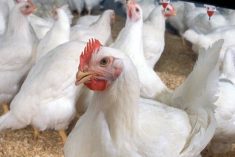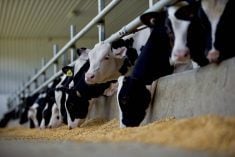A controversial federal bill aimed at changing Canada’s plant breeders’ rights provisions enters its second day of committee debate today on Parliament Hill.
Bill C-18, the Agricultural Growth Act, would give plant breeders and seed companies greater control over intellectual property and more flexibility in collecting royalties on new seed products.
The proposed legislation has already received second reading in the House of Commons. The standing committee on agriculture began hearings on the bill Oct. 9, with a presentation from federal agriculture minister Gerry Ritz.
Ritz told committee members that the bill will encourage investment in plant breeding and give farmers access to more new seed varieties.
Read Also

CBOT Weekly: China, shutdown guiding the market
The United States grain and oilseed markets are currently dominated by two factors, said Ryan Ettner, broker with Allendale Inc. in McHenry, Ill. Ettner said those are the absence of a trade deal with China and the ongoing United States government shutdown.
He also suggested that ratification of a new intellectual property framework known as UPOV 91 will not restrict farmers’ ability to save, store and replant seeds.
Under Canada’s current framework, “there is now the right for a farmer to save seed. It can be stored, it can be cleaned,” Ritz said.
“There is a lot of misinformation … out there that somehow that would not happen under UPOV 91. That is absolutely not true.”
Some farms groups, including the Canadian Canola Growers Association, support the bill, saying Canada’s intellectual property regime needs to be updated to ensure that seed companies invest in plant breeding and varietal development.
The CCGA said an environment that rewards investments in plant breeding and allows private-sector breeding companies to recover greater returns on their plant breeding investments will benefit farmers and seed developers.
Other groups, including the National Farmers Union, see the bill as a harmful and potentially costly erosion of farmers’ rights.
Expanding intellectual property protections and strengthening plant breeders’ rights will restrict farmers’ ability to store, condition and replant seeds that were harvested on their own fields, NFU officials argue.
It will also clear the way for future regulations that could result in new royalty collection mechanisms such as end point royalties.
If approved by subsequent regulations, end point royalties, or EPRs, would allow companies to collect royalties on the back end of the production process.
In most cases, EPRs are collected on a per tonne basis, similar to producer check-off mechanisms that are currently in place.
NFU officials say provisions in the bill will result in higher seed costs for farmers and give life science companies greater control over the country’s seed supply.
“This … bill further erodes the rights of farmers,” said NFU president Jan Slomp.
“These changes reflect undue influence by corporate lobbyists and a federal government that is all too ready to help global agribusiness at the expense of Canadian farmers.”
Ottawa has indicated that it would be willing to amend the language in Bill C-18 to ensure that farmers do not lose the right to save and replant seeds that they have already purchased legally.
In an Oct. 9 news release, Slomp rejected suggestions that Canada must update its intellectual property framework to attract investment in seed breeding and ensure compliance with international trade agreements.
“Canada does not have to pass Bill C-18 to comply with international trade rules,” Slomp said.
“We can develop our own seed law system that works for farmers and which creates a strong foundation for the kind of food system that will truly support future generations. The first step is to defeat Bill C-18.”
Debate over Bill C-18 comes as the federal government is reducing its role in the development and commercialization of new seed varieties.
Agriculture Canada recently closed a cereal breeding centre in Winnipeg and has indicated it will gradually scale back spending on commercial plant breeding programs for wheat and other widely grown crops.















